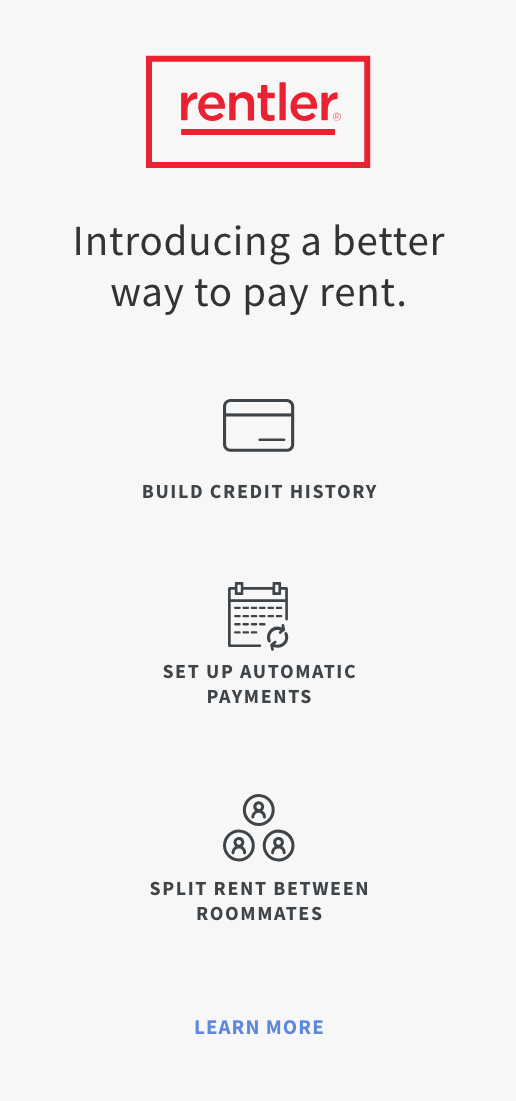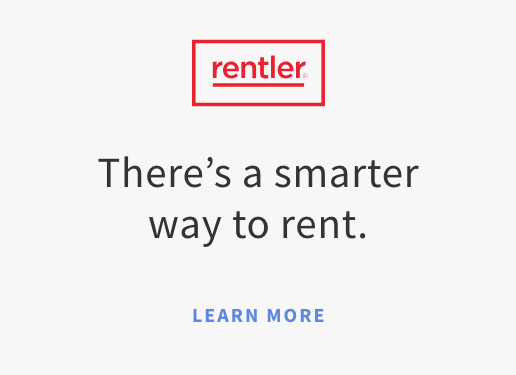Can you rent an apartment with a less-than-stellar credit score? The simple answer is yes. However, navigating rentals with bad credit can be challenging, especially in competitive housing markets. You may have to jump through a few more hoops, present additional documents, or even revise your apartment wishlist in order to secure a home. But fret not, because there is hope.
At a Glance:
- Landlords may consider factors beyond credit scores.
- Offer to pay extra rent upfront or find a cosigner.
- Provide documents and references demonstrating responsibility.
- Explore rentals without credit checks.
- Find a roommate to share expenses with and increase the chances of approval.
- Work towards improving your credit by paying down debts and building a positive history.
Having a low credit score does not necessarily mean the end of your rental journey, instead, it’s about finding creative solutions to overcome this hurdle. By understanding the challenges that come with renting with bad credit and employing strategic measures, you can still find a rental property that fits your needs. Let’s talk about what exactly credit scores mean and how they affect your rental applications in the next section.
What is a Credit Score and How is it Calculated?
A credit score is a numerical expression based on a level analysis of a person’s credit files, primarily sourced from credit bureaus. Lenders, such as banks and credit card companies, use credit scores to evaluate the potential risk posed by lending money to consumers. A higher score implies a lower risk, while a lower score suggests a higher risk.
In the U.S., the most commonly used credit score model is the FICO® Score, which ranges from 300 to 850. This score is calculated based on several factors, including payment history, the amount of debt owed, length of credit history, new credit, and types of credit used. Here’s a brief look at how the average credit score varies among different age groups and income levels.
Average credit score by age 1
| Generation | Average credit score |
|---|---|
| Silent Generation (77+) | 760 |
| Baby Boomers (58-76) | 742 |
| Generation X (42-57) | 706 |
| Millennials (26-41) | 687 |
| Generation Z (18-25) | 679 |
Average credit score by income 2
| Annual income | Average credit score |
|---|---|
| High income | 774 |
| Middle income | 735 |
| Low income | 658 |
How Landlords Use Credit Scores in Tenant Screening
When it comes to renting an apartment, credit scores play a pivotal role during the tenant screening process. Landlords use credit scores to assess the financial responsibility and reliability of prospective tenants. A good credit score is often associated with a responsible tenant who is more likely to pay rent on time and adhere to the terms of the lease.
However, while a credit score is a significant factor, landlords consider more than just this number when evaluating prospective tenants. Each landlord has their own risk assessment methods and criteria, and the importance they place on a credit score can vary. They might also take into account your income level, rental history, and references.
The Minimum Credit Score Required to Rent an Apartment
There’s no universal credit score required to rent an apartment. The minimum credit score a landlord may require often depends on the individual landlord or property management company’s discretion. However, prospective landlords might be more cautious if your credit score falls in the “fair” credit score range by FICO®’s standards, which is from 580 to 669 1.
If you’re wondering how to rent an apartment with bad credit, it’s important to note that a lower credit score doesn’t automatically disqualify you from renting. There are several strategies you can employ to demonstrate your reliability as a tenant, which we’ll cover in the next sections.
Strategies to Rent an Apartment with Bad Credit
Having a bad credit score can be a major roadblock when trying to secure a rental. But don’t worry, it’s not a dead-end. There are several strategies you can employ to convince landlords to rent to you, even with bad credit.
Finding Apartments That Don’t Require Credit Checks
Some landlords have properties that don’t require credit checks. These dwellings can be more affordable and less competitive, and they won’t necessitate you having to explain your credit history. This is a good starting point for anyone worried about their credit impact on rental opportunities.
Building a Strong Renter’s Resume
Your financial health isn’t solely defined by your credit score. You can offer alternative documents to demonstrate your monetary responsibility like payslips and utility bill records. These documents display your consistent income and ability to cover rent. Moreover, character references, especially from past landlords or employers, can vouch for your reliability.
Providing Proof of Employment and Savings
Showing that you have a stable source of income and savings can help to reassure landlords. Payslips, employment contracts, bank statements, and references from your employer or previous landlords can all serve as proof of your financial stability. Remember to mask personal details when providing these documents.
Paying a Larger Security Deposit or Rent in Advance
Offering to pay an extra month’s rent upfront or a higher security deposit can serve as a good faith gesture that you will not default on payments. This can be particularly effective if you have the cash to spare. However, make sure this additional payment is well-documented in the lease or other rental forms.
Getting a Co-signer or Using a Lease Guarantor Service
Finding a guarantor or cosigner with good credit can help alleviate landlords’ concerns. Cosigners commit to meeting the financial obligations if you default. They co-sign the lease, sharing the monetary responsibilities. Guarantors, on the other hand, promise to cover missed payments but don’t enjoy the same tenancy rights.
By employing these strategies, you can enhance your prospects during the rental application process, even with a bad credit score. Your credit score doesn’t define you, and there are ways to navigate around it. At Rentler, we’re here to help make the rental process easier for both landlords and tenants, regardless of credit score.
How to Improve Your Credit Score for Future Rentals
Let’s face it, having bad credit can be a hurdle when renting an apartment. But, it’s not a permanent situation. With a bit of effort, you can improve your credit score for future rentals. Here’s how:
Reviewing Your Credit Report and Disputing Errors
Your first step should be a thorough review of your credit report. This document captures crucial financial details, like your payment history and outstanding debts. Mistakes can happen, and they can unfairly hurt your credit score. If you spot any discrepancies, contest them immediately. It’s your right to have an accurate representation of your financial history.
Paying Bills on Time and Reducing Debt
Timely bill payments form the bedrock of a good credit score. They account for about 35% of your FICO score. An effective way to ensure punctuality is to use scheduling tools, apps, or even traditional reminders.
Addressing your outstanding debts is equally important. Reducing your debt not only eases your financial burden but also enhances your credit score. It’s best to prioritize paying down high-interest debts first.
Becoming an Authorized User on a Credit Card
Finally, consider becoming an authorized user on a trusted individual’s credit card. This move can help you benefit from their good credit habits without the responsibility of handling their account. It’s a journey rooted in mutual trust.
How to Navigate the Rental Process with Bad Credit
Renting an apartment with bad credit might seem daunting, but it’s not an impossible task. By being proactive and strategic, you can increase your chances of securing a rental home despite your credit score. Here’s how to navigate the process.
Being Upfront About Your Credit Situation
Honesty is paramount when dealing with potential landlords. If you have bad credit, it’s better to be upfront about your situation rather than letting them find out through a credit check. Explain the circumstances that led to your poor credit and what you are doing to improve it. Including a personal letter with your application can give landlords a more holistic view of your financial situation and commitment to responsible habits.
Providing Explanations and Supporting Documentation for Bad Credit
Your credit score doesn’t tell the whole story of your financial stability. In addition to explaining your situation, provide documents that can back up your claims of financial responsibility. This can include pay slips, bank statements showing savings, letters of recommendation, and records of regular bill payments.
Exploring Different Neighborhoods with Varying Credit Requirements
The credit score requirement can vary significantly depending on the location and type of apartment. High-demand areas and luxury apartments might have stringent credit requirements, but other neighborhoods might be more lenient.
Be open to exploring different areas and apartment types. Your first rental after a hit on your credit doesn’t have to be your dream apartment. It can serve as a stepping stone to rebuild your credit and rental history.
To sum up, renting an apartment with bad credit might require extra effort, but it’s certainly achievable. By being honest, providing evidence of financial responsibility, and remaining flexible in your rental search, you can find a home that suits your needs.
Conclusion: Overcoming Bad Credit to Secure Your Ideal Rental
Renting an apartment with bad credit may seem like a daunting task, but it’s more than possible with the right strategies and tools at your disposal. Whether you’re opting for a sublet, considering co-living arrangements, or being flexible with your apartment wishlist, there’s a myriad of paths to secure your dream rental — even with a less-than-stellar credit history.
Your credit score is just one aspect of your overall financial health. It doesn’t define you or your ability to be a responsible tenant. By providing additional documentation, such as payslips, recommendation letters, or a strong rental history, you can show potential landlords that you’re a reliable candidate.
Having a guarantor or cosigner, or offering to pay rent in advance, can further alleviate landlords’ concerns. These strategies demonstrate your commitment to fulfilling your rental obligations and can tip the scales in your favor.





